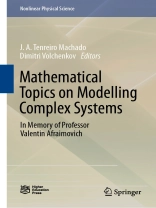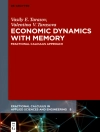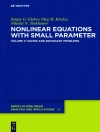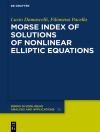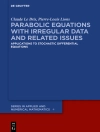This book explores recent developments in theoretical research and mathematical modelling of real-world complex systems, organized in four parts.
The first part of the book is devoted to the mathematical tools for the design and analysis in engineering and social science study cases. We discuss the periodic evolutions in nonlinear chemical processes, vibro-compact systems and their behaviour, different types of metal–semiconductor self-assembled samples, made of silver nanowires and zinc oxide nanorods.
The second part of the book is devoted to mathematical description and modelling of the critical events, climate change and robust emergency scales. In three chapters, we consider a climate-economy model with endogenous carbon intensity and the behaviour of Tehran Stock Exchange market under international sanctions.
The third part of the book is devoted to fractional dynamic and fractional control problems. We discuss the novel operational matrix technique for variable-order fractional optimal control problems, the nonlinear variable-order time fractional convection–diffusion equation with generalized polynomials
The fourth part of the book concerns solvability and inverse problems in differential and integro-differential equations.
The book facilitates a better understanding of the mechanisms and phenomena in nonlinear dynamics and develops the corresponding mathematical theory to apply nonlinear design to practical engineering. It can be read by mathematicians, physicists, complex systems scientists, IT specialists, civil engineers, data scientists and urban planners.
Table des matières
Chapter 01: Applications of the fundamentals of Bézier curves.- Chapter 02: On complex periodic evolutions of a periodically diffused Brussellator.- Chapter 03: Analysis of Intermittent and Quasi-periodic Transitions to Chaos in Vibro-impact System with Continuous Wavelet Transform.- Chapter 04: Complex Dynamics of Solitons in Rotating Fluids.- Chapter 05: A Climate-Economy Model with Endogenous Carbon Intensity.- Chapter 06: A Regulated Market Under Sanctions. On Tail Dependence Between Oil, Gold, and Tehran Stock Exchange Index.- Chapter 07: Dynamics of Water-Constrained Economies Affected by Climate Change: Nonlinear and Stochastic Effects.- Chapter 08: An efficient operational matrix technique for variable-order fractional optimal control problems .- Chapter 09: Solving nonlinear variable-order time fractional convection-diffusion equation with generalized polynomials.- Chapter 10: Inverse problems for some systems of parabolic equations.- Chapter 11: Solvability In The Sense Of Sequences For Some Non Fredholm Operators With The Bi-Laplacian.
A propos de l’auteur
Dr. J.A. Tenreiro Machado was born at 1957. He graduated with ‘Licenciatura’ (1980), Ph.D. (1989) and ‘Habilitation’ (1995), in Electrical and Computer Engineering at the University of Porto. During 1980–1998, he worked at the Dept. of Electrical and Computer Engineering of the University of Porto. Since 1998, he works at the Institute of Engineering, Polytechnic Institute of Porto, Dept. of Electrical Engineering. His research interests are complex systems, nonlinear dynamics, fractional calculus, modelling, control, entropy, evolutionary computing, genomics, robotics and intelligent transportation systems.
Dr. Dimitri Volchenkov obtained his Ph.D. in Theoretical Physics in the Saint Petersburg State University (Russia) and habilitated in the CNRS Centre de Physique Theorique (Marseille, France). He is Associate Professor of Mathematics and Statistics at the Texas Tech University (USA) and Professor Risk Assessment and Data Science at the Sichuan University of Science and Engineering (China). His research interests are the science of complexity and interdisciplinary physics ranging from the stochastic nonlinear dynamics to plasma turbulence, to urban spatial networks, and their impact on poverty and environments, analysis of complex networks, data analysis of economic, inequality and politics data, big data analytics, survival analysis, modelling of evolutionary biology and ecology.
